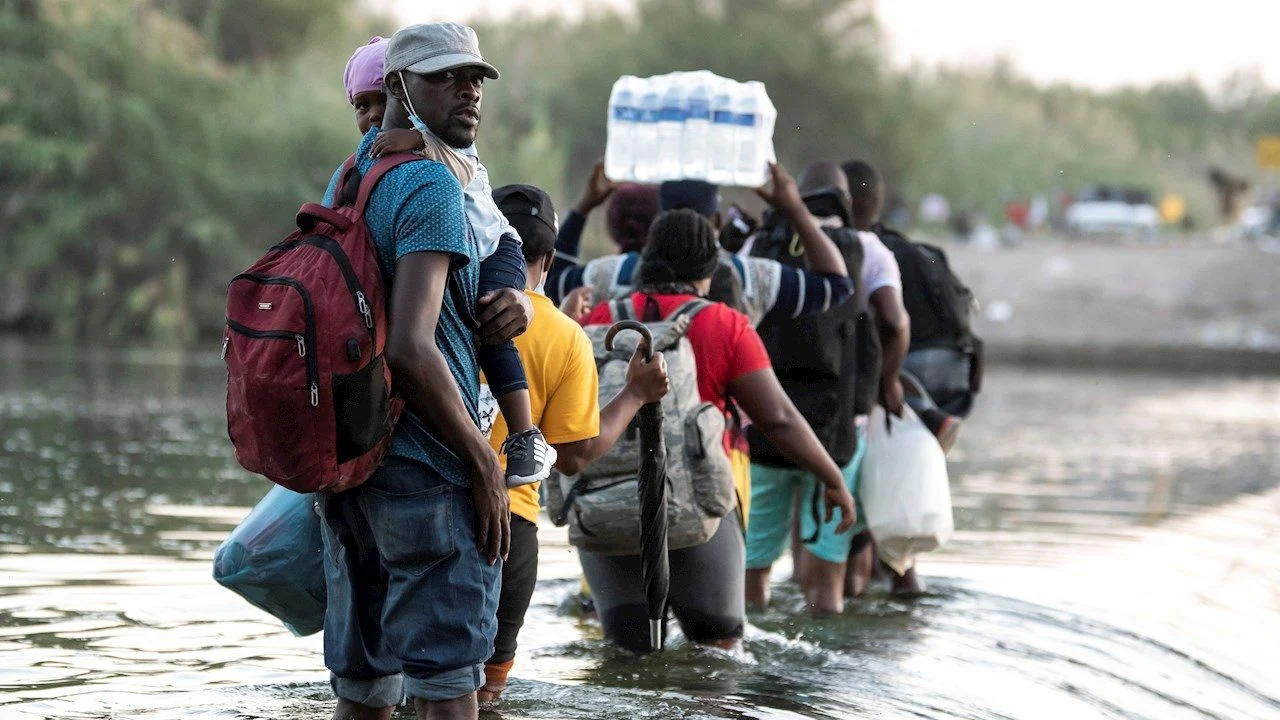Estimated reading time: 5 minutes
Telemundo News and the Latin American Center for Investigative Journalism (CLIP), together with other partners, corroborated through official records the journey of some 19,000 people who attempted to reach the U.S. border inside cargo trucks through Mexican roadways, including some 3,000 children.
The heat inside the cargo truck was suffocating. The women were squatting against the walls holding the children on their legs; the men sat in rows, one behind the other, at the center. About 170 people were traveling in the container, in the dark and in forced silence.
Two weeks earlier, on January 4, 2019, Yanira Chávez had closed the reddish wooden door of her house in Armenia, a small town in northern Honduras. She had paid $5,000 — an amount she would have never been able to save with her salary at a banana packing house — to a local coyote (smuggler) who promised to take her to the United States along with her children, Samir, who was 9 years old, and Emely, 5. Her husband, Erling Rosales, had paid for the trip and was waiting for them in New Orleans, where he had been living for two years now.
Chávez was carrying two huge black suitcases “with little wheels” that she bought for 1,200 lempiras (about $48) in a nearby town because the coyote assured her that they were going to cross Mexico by plane and “they couldn’t look like immigrants” at the airports. Upon arriving in the United States, the family would have to pay the smugglers another $5,000.
From San Pedro Sula they traveled by bus to the Guatemalan border with Mexico, which they crossed through a river by boat. “I’m now a little closer to you,” she wrote in a text message to her husband. “We didn’t know, it didn’t cross our minds, everything we still had to go through,” Chávez recalled last October in an interview with Telemundo News. She spoke from Long Island, New York, where her family lives in uncertainty, after their asylum request was denied.
In Mexico, she said, they were taken to Villahermosa, a city in the state of Tabasco, where they expected to finally catch a plane. But there they had their phones taken and were forced to throw away their suitcases and board a trailer truck.
“We said: ‘We’re not going,’” Chávez recalled, “but by then it doesn’t matter if you want to get in or not: you have to go, because if you don’t, they threaten to turn you over the cartel.”
They hadn’t gone two miles when the truck stopped at a checkpoint and a child, around 2-years-old, began to cry. “Either you shut him up or I do,” a coyote demanded of the mother, while outside the vehicle was being inspected, according to Chávez. The smuggler, who was armed, snatched the boy from her, held him dangling by his head, and put one hand on the back of his neck and another on his face, covering his mouth: “The mother just started crying. Then the boy fell fast asleep,” she recalled.
They had barely any food or water. There were plastic buckets at each end of the trailer for those who couldn’t hold in their bodily needs: “People were fainting. A young woman told me not to let the children fall asleep,” Chávez said.
They crossed 900 miles (almost 1,500 kilometers) from Villahermosa to Reynosa, in the Mexican state of Tamaulipas. In four days they got off the trailer only twice. At one of the stops, already near the border, they walked for several hours up a mountain until nightfall to go around a police checkpoint. “It was so cold it was horrible,” Chávez said, “we felt so weak, I couldn’t walk as fast since I had my daughter. We hadn’t had water in two days.”
The 36-year-old woman claims that when she arrived in Reynosa, the coyotes who greeted them kidnapped her along with her children and her sister-in-law, who was traveling with two children, and held them in a hotel for two weeks with almost no food while they extorted her husband in New Orleans. Rosales paid $14,000 to have them released, she said. Finally, on February 3rd, after traveling for almost a month, Chávez and her children crossed the Rio Grande
“I think about the people who die in those containers. It’s horrible to have to beg them, because they could maybe open the door, but they don’t care. They want the money and to deliver the package, because they don’t look at you as a person. They look at us as if we were cattle or animals,” Chávez said from Long Island, New York, where her family lives in uncertainty, after their asylum request was denied.
Chávez and her children survived the harrowing journey, but many others have not.
For seven months, Telemundo News and the Latin American Center for Investigative Journalism (CLIP, in Spanish), together with Pie de Página and its allies Chiapas Paralelo, En un 2×3 Tamaulipas, and reporters in Veracruz, Plaza Pública in Guatemala, Contracorriente in Honduras, ICIJ in Dominican Republic and Bellingcat, investigated the flourishing business of smuggling migrants in tractor-trailers across Mexican highways.
We interviewed survivors, researchers and former officials, and reviewed thousands of pages of documents. Based on statements from federal institutions and press reports, we created a database with more than 170 cases of trucks that were involved in traffic accidents or were detained or abandoned between 2018 and 2023, which offer important clues about how smugglers operate.
About 19,000 migrants have traveled in these cargo trucks, including more than 3,200 minors. At least 111 migrants who were traveling in tractor-trailers in Mexico have died in the last six years, suffocated to death by the heat and lack of oxygen, or in traffic accidents, among them the trailer that overturned in December 2021 in the state of Chiapas, when 56 people died.
Due to the inconsistent quality of the data, and because Mexican authorities only began tracking cases since 2022, following the Chiapas accident, the data reveals only a small portion of this form of human trafficking. (https://www.nbcnews.com/news/latino/desperate-migrants-travel-us-deadly-cargo-trucks-noticias-telemundo-sp-rcna150285)





































